How one indie developer has kept the classic cRPG alive for decades
These RPGs seem lost in time, but a focus on storytelling has kept some players coming back for years.
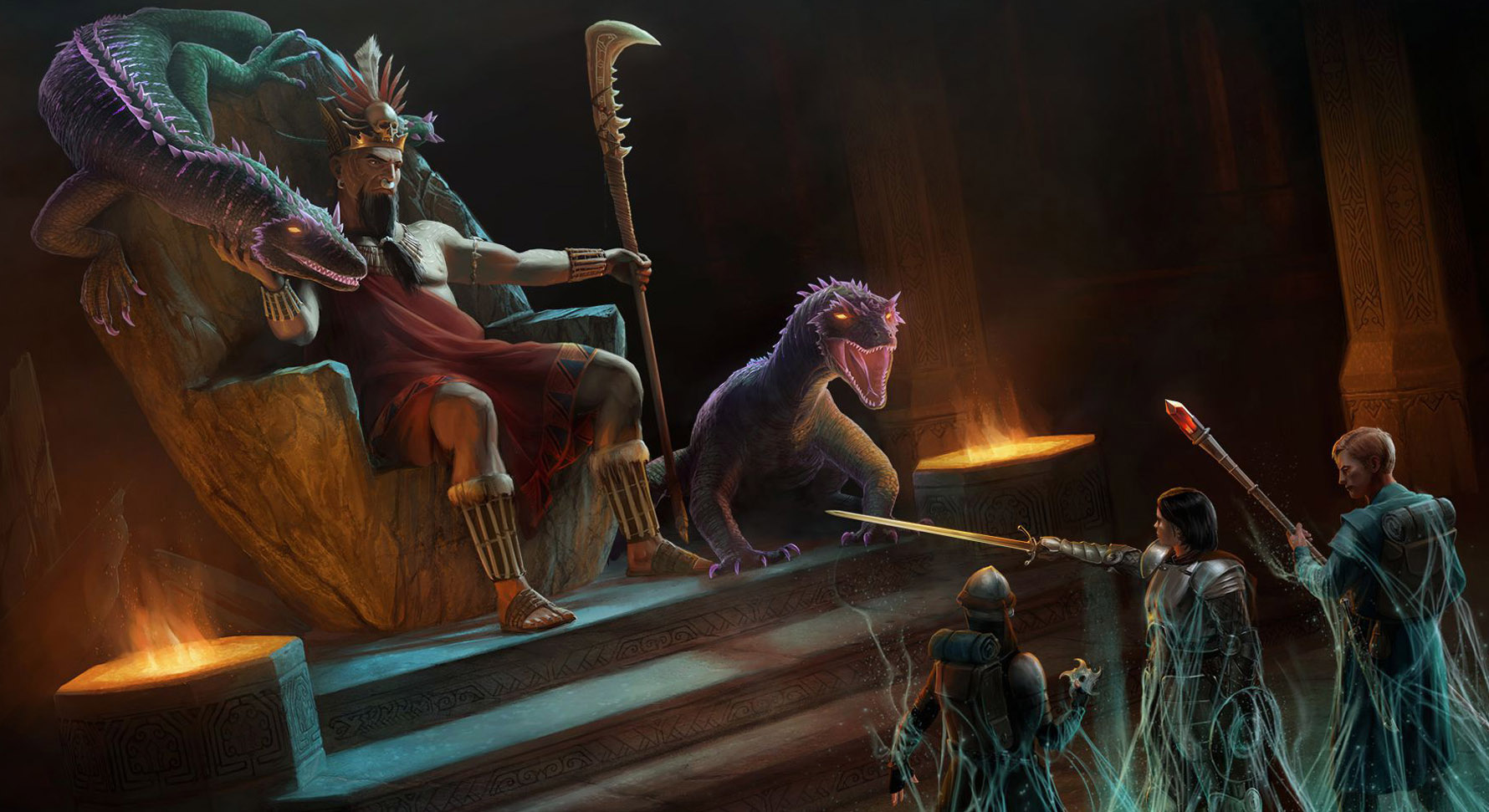
The first wizard I ever killed was the wireframe master of the Dungeons of Daggorath, at the end of a grinding slog through five grid-based, monochromatic levels that took me most of a summer to finish. I've played (and loved) a lot of RPGs since then, but it's been a long time since I've dug into one like Avadon 3: The Warborn. It's not just retro-flavored, it's retro, full stop: Top-down and grid-based, with simplistic graphics (or primitive, if you want to be less charitable about it), minimal sound and visual effects, no music or voice acting, and lots of reading. It feels like it belongs to a generation of games where the 'c' in 'cRPG' was an important distinction, because most people still thought of RPGs as pen-and-paper games.
Some RPGs, like Obsidian's Pillars of Eternity and inXile's Wasteland 2, promised to bring back that old-school feeling. Avadon doesn't feel old-school. It feels old.
And yet it managed to find an audience. Not just the Avadon trilogy—developer Spiderweb Software has been making games like Avadon for more than 20 years, long enough for the games industry to move on while it continues to make a very particular kind of RPG. There aren't a lot of people playing games like Avadon, but Spiderweb's survival shows there's still a small group of players hungry for RPGs that genuinely feel like they'd run on a Pentium. Experiences like those can't fall back on swanky eye candy or sprawling first-person worlds to draw in their players, so they rely on something that sometimes feels downright novel these days: Telling a good story.
Avadon 3's not just retro-flavored. It's retro, full stop.
Spiderweb Software is a tiny outfit, consisting of two full-time employees, Jeff Vogel and his wife Mariann Krizsan, backed by “a goodly number of freelancers, mainly for PR and art.” Since releasing its first game, Exile: Escape From the Pit in 1995, Spiderweb has established a well-earned reputation for crafting sprawling, story-heavy RPGs of the sort that are rarely seen anymore in mainstream games. They aren't pretty, but they're laden with story, characters, and interesting—and difficult—choices. It's a narrow niche, but one that has served Spiderweb well.
How did Vogel come to serve that particular demand—and why does he keep doing it? “The indie games biz is super-duper-flooded right now. To write a game that stands out, you need to put real work in it, and you need to do that work in an area that a thousand people aren’t doing already,” he said. “That’s why story-heavy RPGs are a reasonable business to be in. There are a multitude of indie RPGPs out now. However, most of them don’t have good, deep stories, because writing a good story is really hard. What are the story-heavy RPG series now? Pillars of Eternity. Divinity. And not really much else. That gives me actual room in the market to work.”
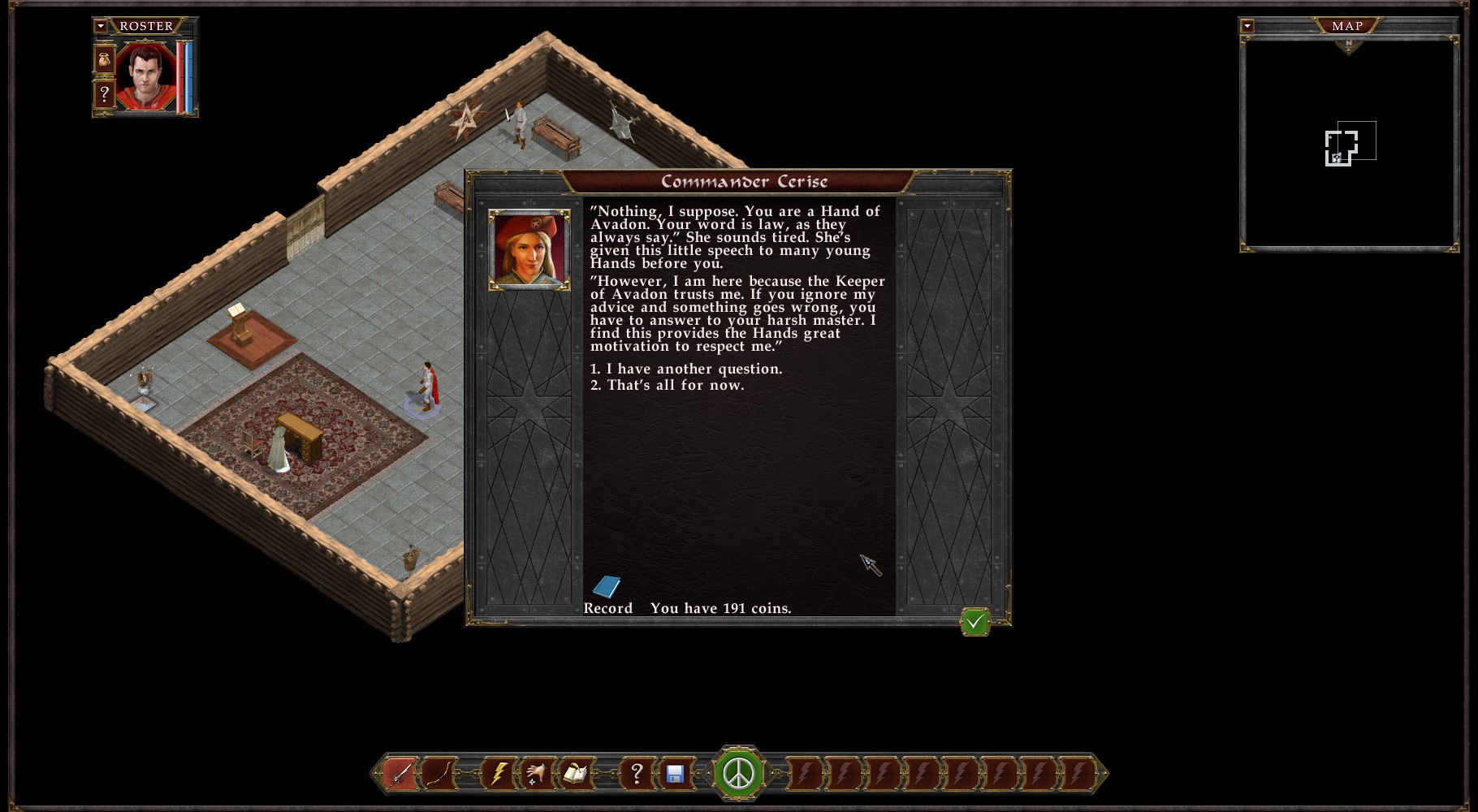
Vogel started writing stories when he was around 10, and describes himself as a fantasy author who just happens to work in the medium of gaming. It's a bit surprising, then, that he's not really a big fan of the fantasy genre. “I read it some, sure, and I even like some of it. The Magician series by Lev Grossman is probably my favorite. It’s just not something I’m drawn to,” he said. “My favorite fiction is realistic fiction in a setting far enough from ours that it is basically fantasy now. I recently reread The Grapes of Wrath and was absolutely entranced.”
And while words are the backbone of the games he creates, he also believes that too much of a good thing is not a good thing at all. When I mentioned Obisidian's recent claim that its upcoming fantasy RPG Tyranny is built on more than 600,000 words, he seemed downright taken aback. He hasn't counted the words in his own games since Avernum 3, which came to about 200,000 words; he thinks Avadon 3 weighs in somewhere in the neighborhood of 120,000-150,000.
Keep up to date with the most important stories and the best deals, as picked by the PC Gamer team.
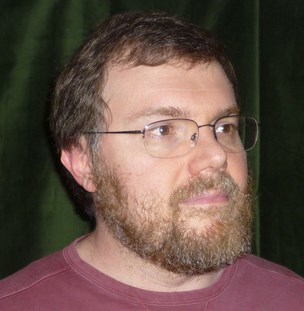
"From day one, we provided the player with a wide variety of races and sexes to choose from for player avatars. In 1994, this was pretty radical, and it got us a lot of very long-term fans who had never seen anything like it."
“But I think huge words counts are a real danger. I mean, 600,000? Good lord! That is longer that The Lord of the Rings and The Hobbit put together. That’s a big, big chunk of verbiage. It doesn’t make me want to play the game more,” he said. “I think there is always a peril in flooding the player with words. Designers have discovered the joy of text. Now they have to discover the joy of brevity and skillful editing. You can almost always make a piece of writing better by shortening it. I loved the writing of Stanley Parable, and it didn’t have many words at all. And I’m about halfway through the indie hit Inside. That is a gorgeously written game, and it is entirely wordless.”
The loyal fans
Vogel's appreciation for well-written videogames is shared by his fans. I spoke to some Avadon 3 beta testers, including homemakers, a data analyst, a computer science graduate student, and a theater manager at a major university. Despite the obvious diversity of the group, they do share some commonalities.
They tend to be older than the “average” gamer (no teenagers screaming into headsets in this lot); they have a long-standing (but not necessarily fanatical) interest in the RPG genre, citing influences ranging from Angband and Super Mario RPG to Morrowind, KOTOR, Dragon Age, and The Witcher; and they all say the storytelling is what brought them to Spiderweb, and keeps them there.
“The stories are always great. Jeff is a brilliant writer,” one fan, who goes by the name Istara, explained. “Spiderweb also really forces you to make moral choices, and there's usually no one 'perfect' 100 percent righteous choice. In this regard they have deeper replayability. The Companion system for Avadon is also cool, getting them to like you so they all stick with you.”
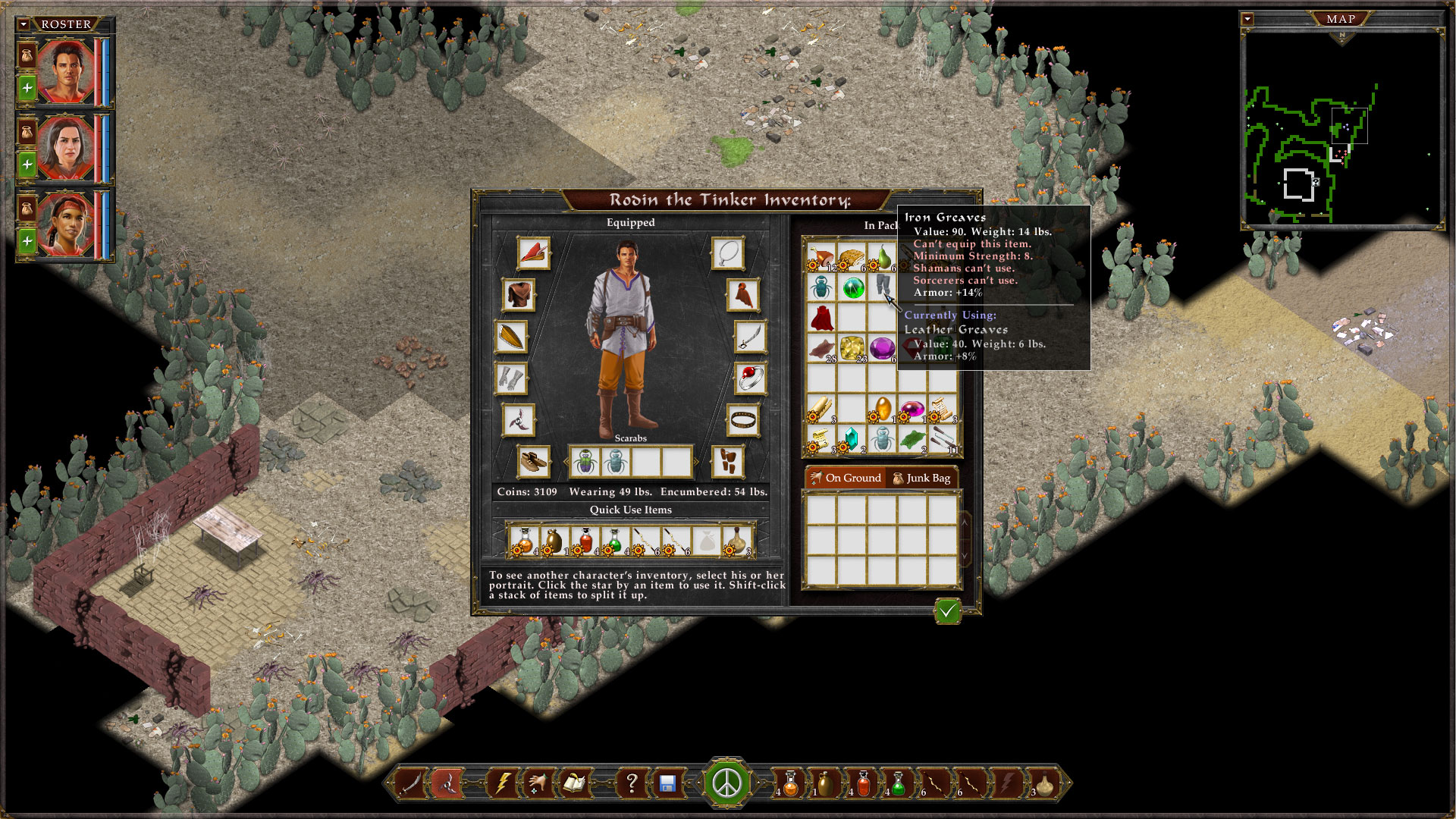
Something else Spiderweb's fans seem to share is disinterest in playing the game at higher difficulty levels. Danielle, another tester, said she was ashamed to admit that she only ever plays on normal difficulty, but so does literally everyone else I talked to. It's a tiny sampling, but that unanimity has to carry some weight, considering how many RPG players tend to gloss over story to dig into the guts of a complex battle system.
I also found that, despite appearances, Avadon 3 isn't as obtuse as it appears. It was unexpectedly easy to play once I got used to the quirks of the interface, and while I got my ass kicked in a few fights I wasn't ready for, I soon learned that the game's openness (although I'm told it's actually quite linear compared to most other Spiderweb games) ensured that I could wander off, do other things, and then come back to tackle tough areas when I was better prepared. The looks belie the reality, in other words: Get past that crude visual element and you'll find a remarkably accessible RPG.
That's not to say it won't challenge you. “You actually have to make moral decisions, and the choices you make affect not just the overall ending of the game, but the small interactions you have with various people along the way, including your own party,” a player named Trish told me. “And those decisions are not easy, by any stretch. You can't help but feel a little icky about some of them, but that's what makes them so fun.”
It didn't take me long to grasp what she was talking about. I started playing Avadon 3 assuming that as a Hand of Avadon, I would be a the usual freelance superstar, wandering the land, delivering heroics and justice, and basking in the adulation of the masses wherever I went. But that assumption was way off-base. The military commander of my camp didn't like me, but she was also afraid of me—resentfully so. So were most of the people who live beyond the camp's gates. And for good reason. Hands, collectively, are kind of dicks—basically a paramilitary secret police force dedicated to preserving order at any cost. One encounter with a trio of locals ended with a warning to stay in line. Even though they'd done nothing wrong—they were just looking for directions, as I recall—the threat was obvious, and particularly uncomfortable in the current political climate. And it wasn't just exposition telling me that I was the oppressor. I felt like it.
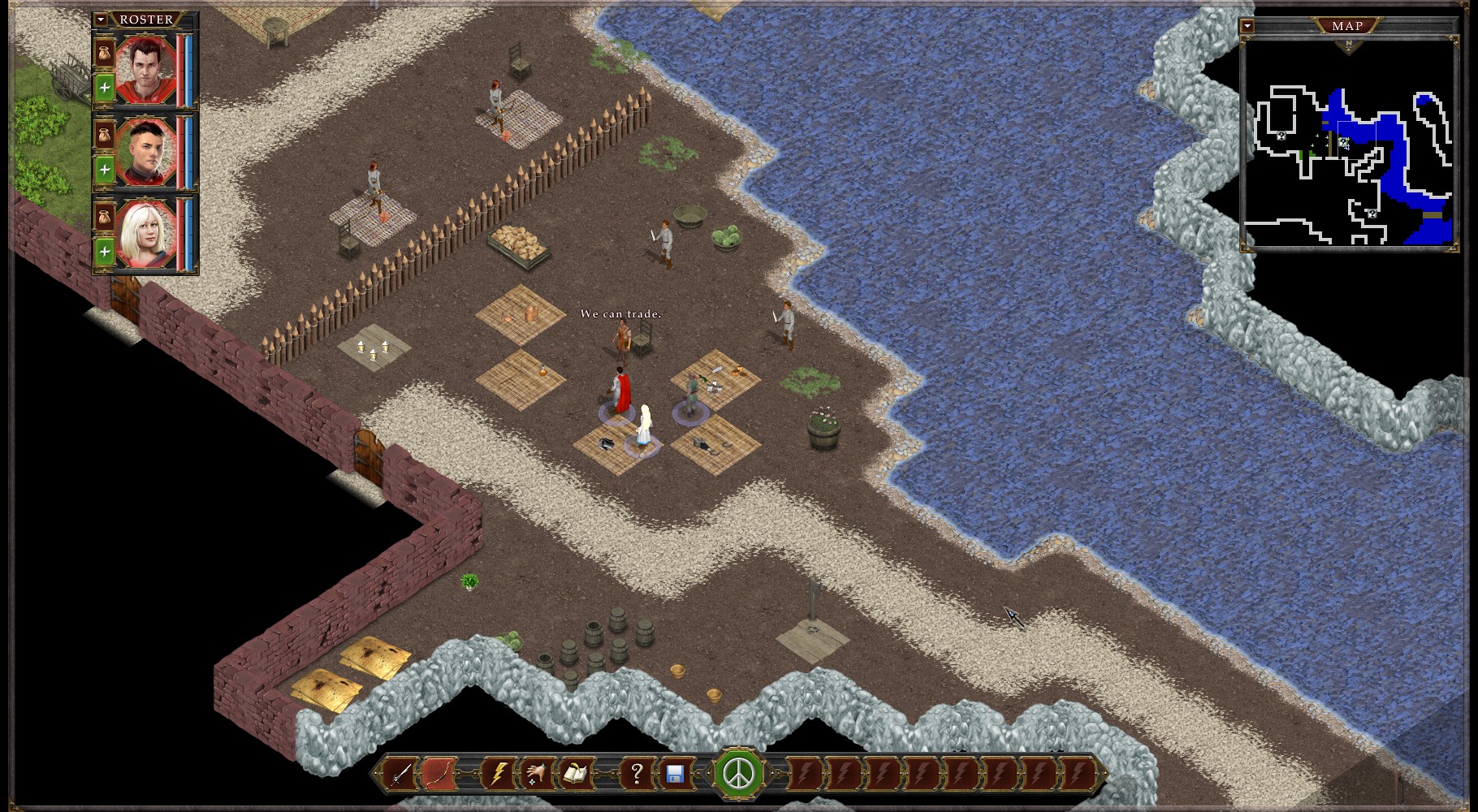
A tester named Meredith said she was actually put off by that “secret-police effect.” “Every decision you make hurts someone, and there's quite a bit of collateral damage even when you're doing the right thing,” she told me. “I want escapism and happy endings, and Avadon's not the place to look for that.” But, she added, that sort of realism “is what makes his games unique. Ultima 4 was widely praised for making people reflect on the ethics of their characters' actions, but Lord British didn't do anything like what Jeff's been doing.”
Vogel, who said in an AMA that he's always one bad game away from getting a job selling shoes, has kept things small and avoided overreach to keep costs down. “The illusions have all fallen away. Everyone now sees indie gaming for what it is: An extremely difficult, blood-sport kind of business,” Vogel said.
Vogel said in his AMA that making good graphics requires a skill-set and resources that he doesn't have, and that he will “never, ever” be able to please gamers who are in it for the eye candy. “I will never write a really pretty game. I have to go for the Undertale crowd: people who can look past a mostly not-so-pretty game to the cool stuff under,” he said. “Our next game series, which I'll do after Avernum 3, will have all-new graphics. But honestly? You'll still hate them. They'll be a different low-budget thing that you hate. And that's fair. You can love or not-love what you want. But I have the budget I have and I do what I can.”
That will probably suit his fans just fine.
Special thanks to Istara, Trish Hausmann, Meredith Dixon, Danielle Rapoport, Ben K, and Madcat for their invaluable help.

Andy has been gaming on PCs from the very beginning, starting as a youngster with text adventures and primitive action games on a cassette-based TRS80. From there he graduated to the glory days of Sierra Online adventures and Microprose sims, ran a local BBS, learned how to build PCs, and developed a longstanding love of RPGs, immersive sims, and shooters. He began writing videogame news in 2007 for The Escapist and somehow managed to avoid getting fired until 2014, when he joined the storied ranks of PC Gamer. He covers all aspects of the industry, from new game announcements and patch notes to legal disputes, Twitch beefs, esports, and Henry Cavill. Lots of Henry Cavill.

